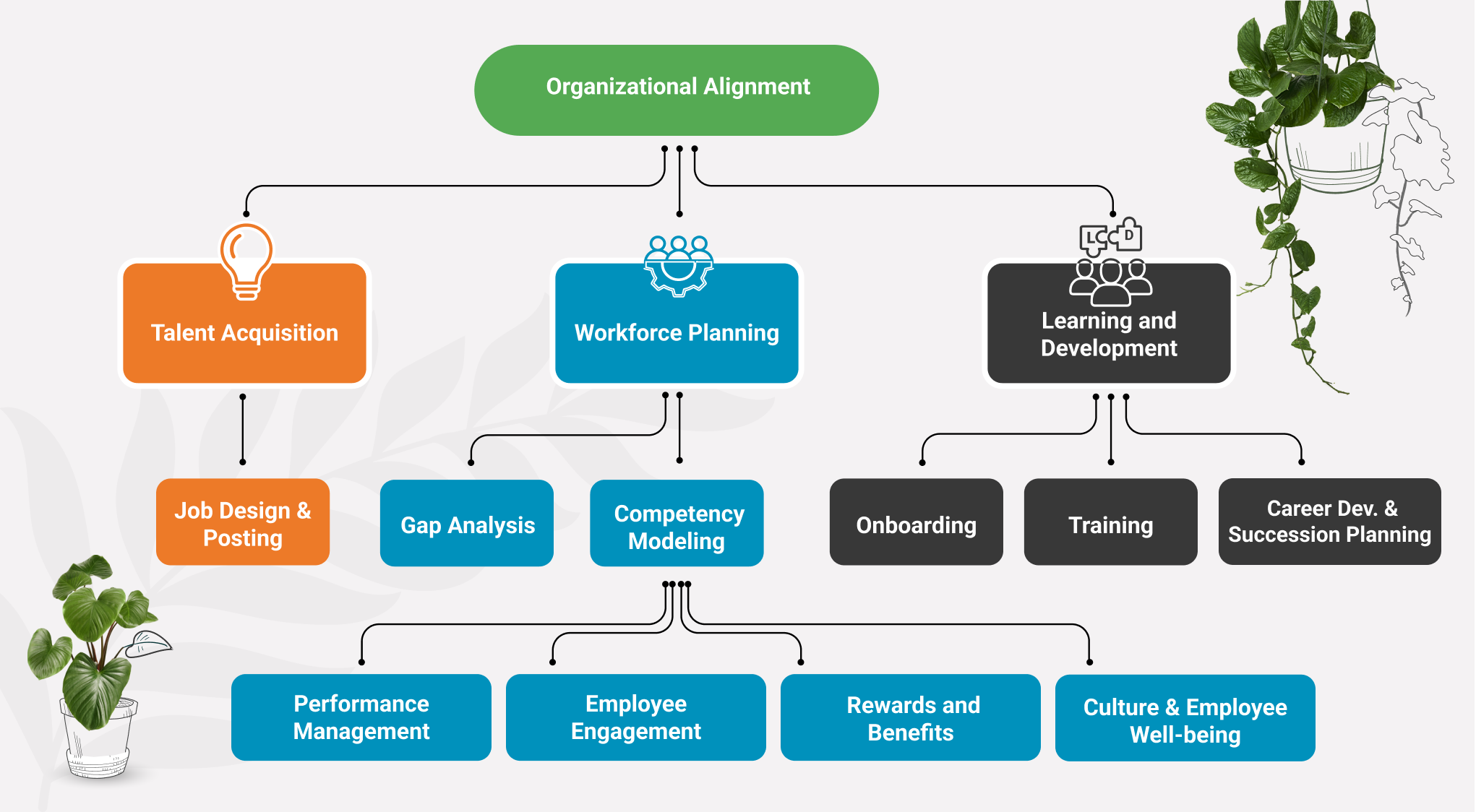Talent Management
Talent management, facilitated by human resource management, refers to the systematic process of identifying, acquiring, developing, retaining, and deploying the human capital within an organization.
The objective is to ensure the organization has the right people with the requisite skills and competencies in the right roles at the right time. Talent management is not just limited to attracting the best talent but also involves nurturing and developing talent to meet current and future organizational needs.
Talent Management Strategy
A talent management strategy, integrated with HR Management, must focus on these pillars to drive organizational outcomes:
Enhance Workplace Culture: Prioritize employee well-being to improve satisfaction and retention, creating a culture where everyone feels they belong
Enable Career Growth: Offer transparent career progression pathways and the necessary support systems, aiming to reduce turnover rates
Maximize Utilization of Strengths: Use strength-based assessments to align employees with roles where they can be most effective, thereby improving engagement and operational efficiency
Competitive Compensation: Utilize real-time industry and regional benchmarks to offer fair and competitive Compensation packages to attract and retain top talent
Promote Diversity and Inclusion: Actively seek to diversify the workforce to enrich problem-solving capabilities and better represent our community
Talent Management Model
The following key elements should be incorporated to achieve a winning talent strategy:

Here's how to interpret the diagram's connections:
Organizational Alignment: Central to all pillars, the overarching principle guides all other aspects
Workforce Planning: Includes sub-components like Competency Modeling and Gap Analysis, which feed into Performance Management
Talent Acquisition: Incorporates elements like Job Design and posting, and links to Learning and Development
Learning and Development: Sub-components like Onboarding, Training, Career Development, and Succession Planning feed into Performance Management
Performance Management: Connected to Employee Engagement, Rewards and Benefits, Culture and Employee Well-being
Employee Engagement, Rewards and Benefits, Culture and Employee Well-being: These are often interrelated and impact one another